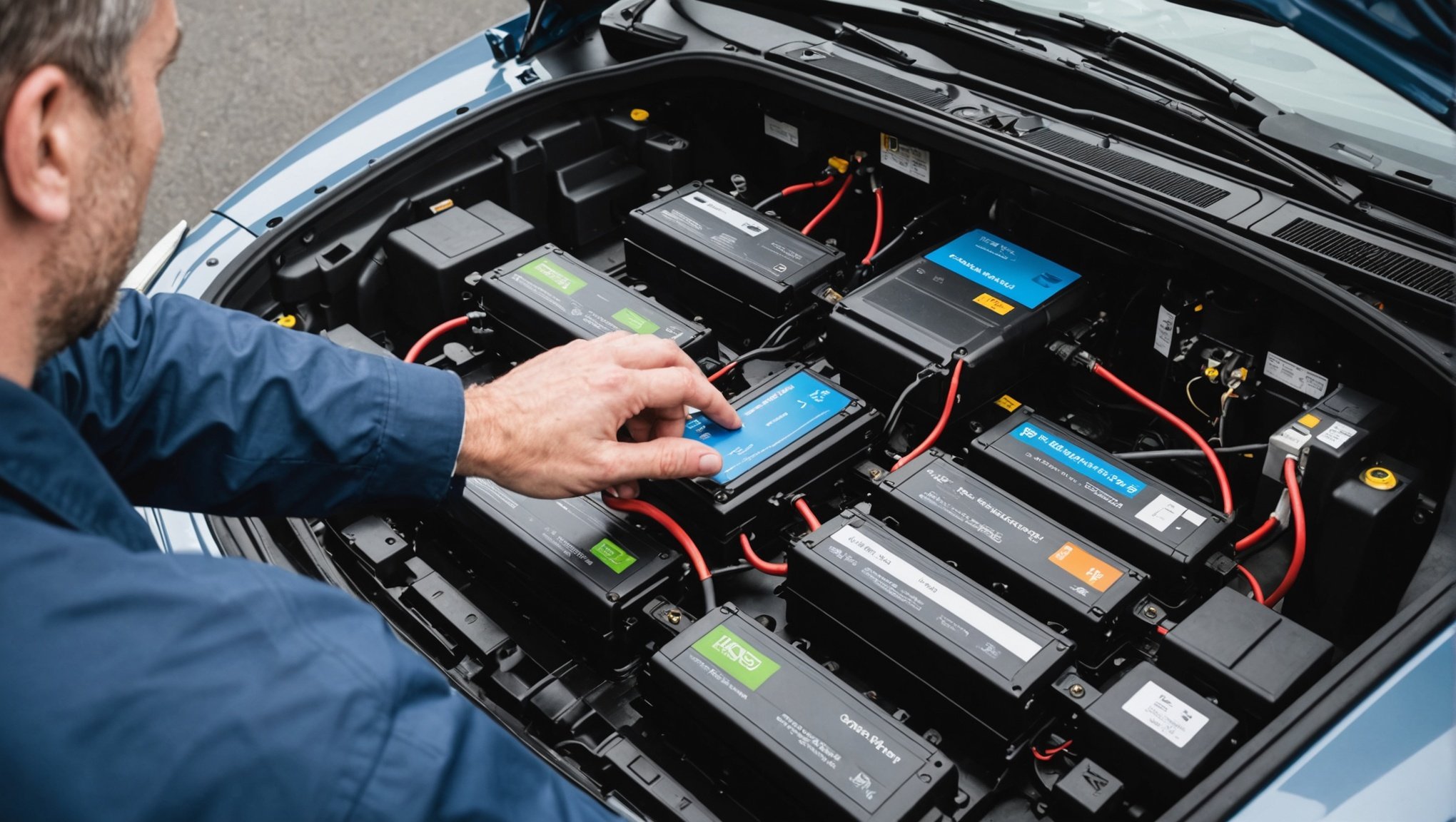As the world makes a concerted effort to reduce carbon emissions, hybrid vehicles have become a popular choice among UK drivers. These vehicles offer the best of both worlds: the environmental benefits of electric vehicles and the long-range capabilities of traditional petrol or diesel cars. However, to fully enjoy these advantages, maintaining your hybrid vehicle’s battery is crucial. This article delves into the best practices for battery maintenance to ensure your hybrid runs efficiently for years to come.
Understanding Your Hybrid Vehicle’s Battery
Hybrid vehicles rely on a sophisticated blend of petrol or diesel engines and electric motors, with a battery pack serving as the critical component for energy storage. Unlike traditional car batteries, hybrid batteries are more complex and generally more expensive to replace. Therefore, proper maintenance is key to prolonging their lifespan and ensuring optimal performance.
Also to see : How can UK drivers maximize the range of their electric vehicles during winter?
The Role of the Battery
To understand why maintenance is essential, you must first grasp the role of the battery in a hybrid vehicle. The battery pack stores electrical energy generated during braking and cruising. This stored energy then powers the electric motor, significantly reducing fuel consumption and emissions. Ensuring the battery remains in good condition is critical for the vehicle’s overall efficiency and longevity.
Types of Hybrid Batteries
There are various types of batteries used in hybrid vehicles in the UK, including:
Also to see : What steps are involved in converting a van into a camper under UK regulations?
- Nickel-Metal Hydride (NiMH): Common in older models, these batteries are known for their reliability but may suffer from memory effect.
- Lithium-Ion (Li-ion): Found in more recent models, Li-ion batteries are lighter, have a higher energy density, and suffer less from memory effect.
Understanding the kind of battery your vehicle uses can help you tailor your maintenance practices more effectively.
Battery Life Expectancy
Typically, a hybrid vehicle battery can last between 8 to 10 years or 100,000 to 150,000 miles, whichever comes first. However, this lifespan can vary significantly based on driving habits, climate, and how well the battery is maintained.
Routine Maintenance Tips
Maintaining a hybrid vehicle battery involves more than just occasional checks. Routine maintenance practices are essential to ensure the longevity and performance of the battery.
Regular Inspections
Periodic inspections by a certified technician can help identify potential issues before they become major problems. During these inspections, technicians will check for signs of wear and tear, corrosion, and other damage. They may also run diagnostic tests to ensure the battery is functioning correctly.
Keep the Battery Cool
Heat is one of the biggest enemies of battery life. High temperatures can cause the battery to degrade faster, reducing its overall lifespan. Ensure the vehicle’s cooling system is working correctly, and park in shaded areas whenever possible. Some advanced hybrid models come equipped with battery cooling systems, which should be regularly serviced.
Optimal Charging Practices
Avoid letting the battery discharge completely before recharging. Keeping the battery charged between 20% and 80% can significantly extend its life. Most hybrid vehicles have systems in place to manage this automatically, but being mindful of your driving habits can still make a big difference.
Driving Habits That Can Affect Battery Life
Your driving habits can have a significant impact on the longevity of your hybrid vehicle’s battery. Adopting a few simple changes in your driving style can go a long way in ensuring your battery remains in top condition.
Gentle Acceleration and Braking
Aggressive driving can place a considerable strain on your hybrid vehicle’s battery. Gentle acceleration and braking allow the battery to recharge more efficiently during regenerative braking processes. Smooth driving also reduces the wear and tear on other vehicle components, contributing to overall longevity.
Short Trips vs Long Journeys
Frequent short trips can be more taxing on a hybrid battery compared to longer journeys. This is because the battery does not get sufficient time to recharge fully. Aim to combine shorter trips into one longer drive whenever possible. This practice not only benefits the battery but also improves fuel efficiency.
Use of Eco Mode
Most modern hybrid vehicles come with an Eco mode, which optimises the performance of the vehicle to enhance fuel efficiency and battery life. Make it a habit to use this mode, especially during city driving, to get the most out of your battery.
Seasonal Considerations
The UK’s varied climate can also affect the performance and longevity of your hybrid vehicle’s battery. Understanding how to adapt your maintenance practices according to the seasons can help mitigate these effects.
Winter Maintenance
Cold weather can have a detrimental effect on battery performance. During winter, try to keep your vehicle in a garage or sheltered area. Preconditioning the battery by warming up the car before driving can also help. Additionally, avoid using the vehicle’s heater excessively, as this can drain the battery faster.
Summer Maintenance
As mentioned earlier, heat is detrimental to battery life. During the summer, use window shades to keep the car’s interior cool and park in shaded areas whenever possible. Ensure the vehicle’s cooling system is in good working condition to help maintain optimal battery temperature.
Seasonal Check-ups
Schedule seasonal check-ups with a qualified technician to ensure that your battery and the vehicle’s overall system are prepared to handle the upcoming weather conditions. These check-ups can identify potential issues that are specific to the season, allowing you to take preventive measures.
When to Consider Battery Replacement
Despite best efforts, there comes a time when a battery must be replaced. Knowing when to consider a replacement can save you from unexpected breakdowns and ensure continued vehicle performance.
Signs of Battery Deterioration
Some common signs indicate that your hybrid battery may be nearing the end of its life. These include:
- Reduced Fuel Efficiency: If you notice a drop in fuel efficiency, it could be a sign that the battery is not holding its charge effectively.
- Frequent Need for Charging: If the battery needs to be charged more frequently than usual, it could indicate deterioration.
- Dashboard Warning Lights: The vehicle’s computer system may alert you to battery issues through warning lights on the dashboard.
Cost of Replacement
Replacing a hybrid battery can be expensive, often ranging from £1,000 to £3,000. However, considering the long-term savings on fuel and reduced environmental impact, many drivers find it a worthwhile investment. Some manufacturers offer extended warranties on hybrid batteries, which can significantly reduce replacement costs.
Professional Assessment
Always consult a professional for an assessment before deciding on a replacement. Technicians can run diagnostic tests to determine the health of your battery and offer recommendations. In some cases, reconditioning the battery may be possible, extending its life for a fraction of the replacement cost.
Maintaining a hybrid vehicle’s battery is crucial for ensuring long-term efficiency, performance, and reduced environmental impact. By understanding the role of the battery, adopting routine maintenance practices, adjusting driving habits, and considering seasonal factors, you can significantly prolong the life of your hybrid vehicle’s battery. Though expensive, timely battery replacement can save you from unexpected breakdowns and ensure that your vehicle continues to run smoothly for years to come. In a rapidly evolving automotive landscape, these best practices will help you stay ahead and make the most of your hybrid vehicle in the UK.











